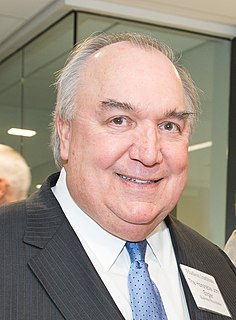A Quote by Paul Keating
The more we view the country through the prism of Aboriginality, the more likely we are to get the angle right.
Related Quotes
I've seen the same thing emerge in the research around the interaction of sleeping and moving and eating: if you get a good night's sleep, you are significantly more likely to make the right choices about what you eat the next morning, you're more likely to work out, you're more likely to get a better night's sleep the next night.
The more you lecture those running the companies on how they need to give more breaks to women or other minority groups and be more open-minded to their work products and perhaps question themselves on a double standard, the more some of those people shut down to your messaging. I'm not saying it's right; I'm just saying you can very easily get labeled as someone who sees everything through a prism of race or gender or what have you. So we have to walk a fine line. It's sad but it's the truth.
I have always looked at the world through the prism of money to some degree. If you could follow the money, it explains a lot of things, in all sorts of aspects of the world. You can look at politics through the prism of money. You can look at art through the prism of money. You can look at sports through the prism of money.
Surprisingly, it's forgiveness, not guilt, that increases accountability. Researchers have found that taking a self-compassionate point of view on a personal failure makes people more likely to take personal responsibility for the failure than when they take a self-critical point of view. They also are more willing to receive feedback and advice from others, and more likely to learn from the experience.
It's an empirical question whether training makes one more or less likely to get in a fight outside the gym. In some ways, I'm probably more likely to get into a fight, because I feel more competent, and I know what it's cost me in the past to back down from fights, and I don't want to feel that way.
There is one great truth in western politics that I have been able to see, and that is this: The more left wing your political ideals are, the more naive a person you are likely to be. The more right wing your political ideals are, the more evil a person you are likely to be. Choosing a political standpoint is largely a matter of deciding which failure as a human you are more comfortable with.


































